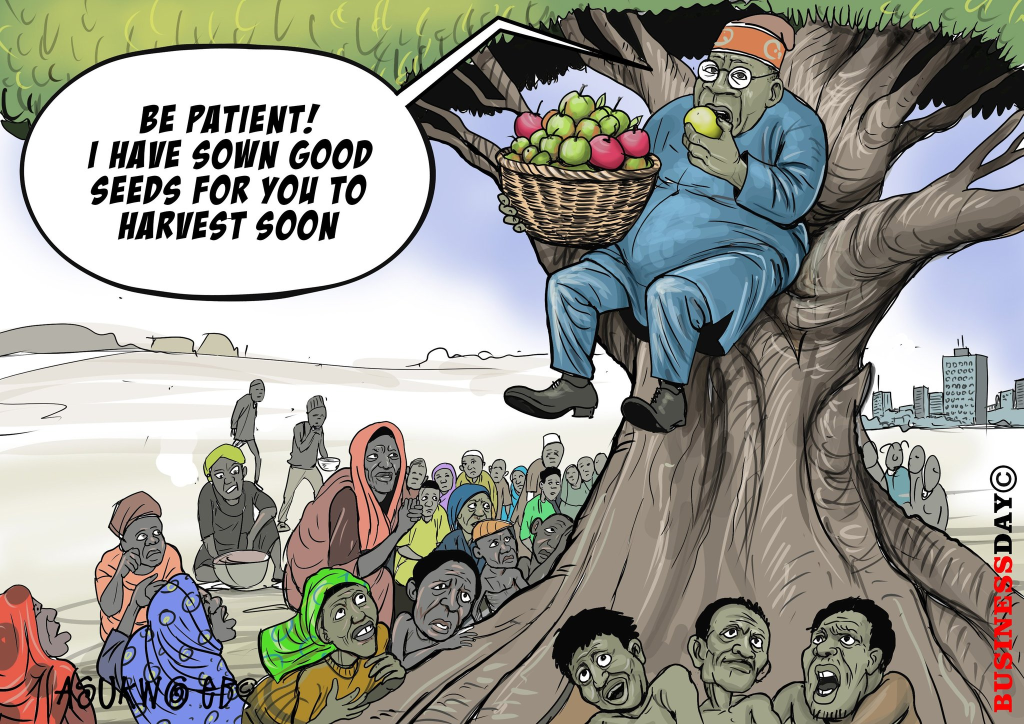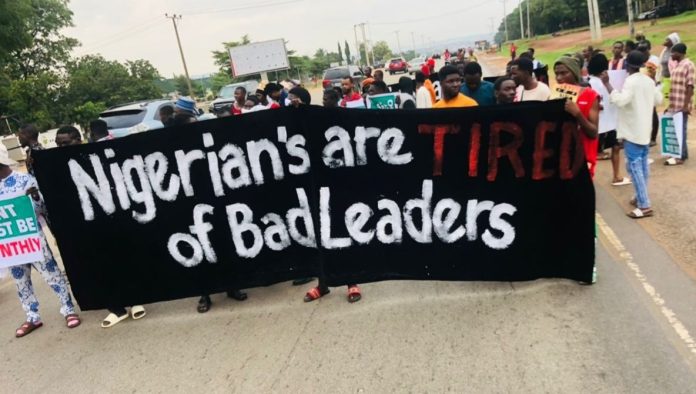The much-anticipated one-million-man march, organized by leaders of the #EndBadGovernance protest, failed to gain momentum on Saturday as low turnout was recorded across Nigeria.
In various regions, protesters who had been expected to gather in large numbers opted to stay away from their usual meeting points, many of which were heavily guarded by security forces. The organizers had positioned the march as a symbolic conclusion to ten days of protests against the worst economic difficulties in Nigeria’s history.
Ahead of the march, security agencies took measures to maintain order, deploying operatives across major cities and setting up roadblocks. The security precautions were notably evident in Abuja, Nigeria’s capital city, where police barricades were established on all roads leading to Eagle Square, the planned venue of the protests’ grand finale.
While demonstrations did take place in the Lokogoma and Apo areas of Abuja and there were reported clashes with security agents, participation was significantly tempered compared to previous gatherings.
Deferred To October
At least one of the self-acclaimed organizers, undeterred by the day’s turnout, has announced plans to resume the protests on October 1st.
Omoyele Sowore, a former presidential candidate for the Action Alliance Congress (AAC), who positions himself as an opposition figure to the government, said in a News Central TV interview Saturday that the protest organizers are refining their strategy to relaunch a new wave of protests in October, or earlier.

“This protest will resume at the beginning of October and might even start earlier depending on situational variables,” Sowore said.
The protesters demanded, among other things, the reinstatement of fuel subsidies, the raising of the minimum wage to N250,000, the release of Biafran secessionist, Mazi Nnamdi Kanu, and the adoption of a new constitution. The government has dismissed the demands as unattainable.
Despite the efforts invested in the 10-day protests, its impact was limited, and nothing was achieved. Even the government, which initially panicked and released a raft of ameliorating palliatives such as the offer to sell rice – a staple food commodity in the country, to the public at half the market price quickly reversed policy and sent out security forces against the organizers.
Secret police, DSS, “invaded” the offices of the Labour Unions in search of links to the protest organizers.
Multinational Country
In Nigeria’s diverse and multicultural society, the failed protests have again brought to the fore the challenge of undertaking any project with a broad national consensus.
Abia State Abuja African Democratic Congress Alex Otti All Progressives Congress Anambra State Atiku Abubakar Aviation Biafra Boko Haram Bola Tinubu Central Bank of Nigeria Dangote Refinery Donald Trump Economic and Financial Crimes Commission English Premier League Enugu State Federal Government of Nigeria France Godswill Akpabio House of Representatives Igbo Indigenous People of Biafra Iran Israel Labour Party Lagos State Mali Muhammadu Buhari National Assembly Nigerian Army Nnamdi Kanu Nyesom Wike Oil And Gas Oyo State Peoples Democratic Party Peter Obi Rivers State Russia Security Siminalayi Fubara South Africa Super Eagles United Kingdom United States
The protests had varied regional responses: in the North, they took on a more intense and confrontational tone—for the first time, now that presidential power had shifted to the West; in the West, participation was more cautious, if not pretentious, while in the East, there was a complete sense of detachment, with many feeling affirmed in their earlier electoral choices dating back to 2015.
Infact in the west, the protests became an alibi for southwestern subnationalism for some.
If anything, the subdued protests, despite the economic challenges that might fuel unrest in other countries, highlight the political theory that revolutions are less likely to occur in multicultural societies.
Armed with that, Nigerian rulers may now seat pretty, and agitated impoverished citizens may now only hope in the good consciences of its leaders to do good by the people.
Comment, Like 👍, share this article, and Follow us on our social media handles.






